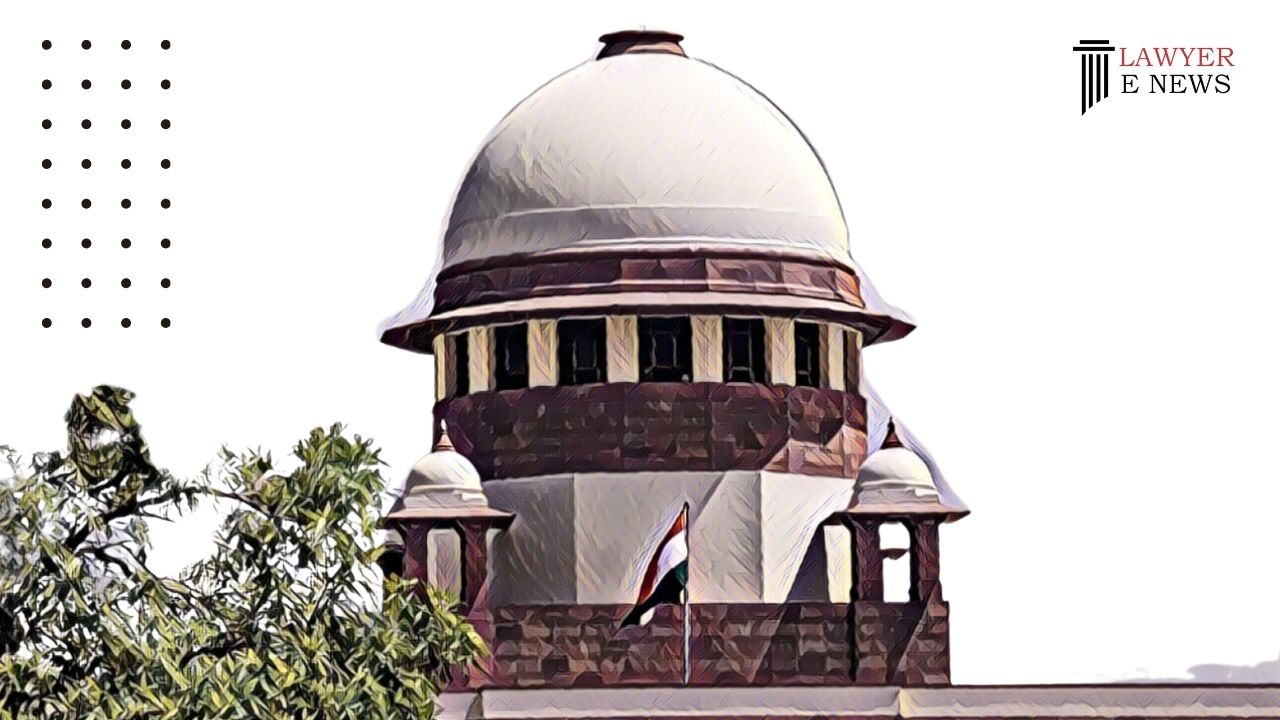-
by sayum
14 February 2026 2:22 PM



The Supreme Court of India has delivered a pivotal judgment in the protracted dispute over land compensation in NOIDA, affirming a compensation rate of INR 403 per sq. yd. This decision addresses the conflicting awards given by various courts and aligns the compensation for landowners in the NOIDA acquisition project. The bench, comprising Justices Surya Kant and K.V. Viswanathan, emphasized the importance of equitable compensation in land acquisitions for industrial development, ensuring fair treatment of landowners while recognizing the developmental goals of the NOIDA authority.
The controversy dates back to January 5, 1991, when the State of Uttar Pradesh/NOIDA initiated land acquisition in Village Chhalera Bangar, Tehsil Dadri, District Ghaziabad, under the Land Acquisition Act, 1894. The acquisition, aimed at planned industrial development, covered approximately 492 acres. Initially, the Land Acquisition Officer (LAO) awarded a compensation rate of INR 110 per sq. yd., based on a sale deed from 1988. Dissatisfied with this rate, landowners sought enhancement, leading to multiple appeals and varying compensation rates across different courts, with the highest being INR 449 per sq. yd. awarded by the Supreme Court in a previous judgment (Bir Singh case).
The Supreme Court noted the inconsistent compensation rates across various judgments and the resultant confusion. Emphasizing the need for uniformity and fairness, the bench stated, "It is imperative to ensure that landowners receive equitable compensation, reflecting the true market value of their acquired land."
The Court applied the principle of guesstimation to arrive at a fair compensation rate, acknowledging the limitations of the available sale exemplars. "Given the absence of direct evidence, we resort to an informed estimation, ensuring that the compensation reflects the land's potential and market conditions," observed Justice Surya Kant.
Recognizing the land's future potential and its strategic location within NOIDA, the Court considered factors like connectivity, proximity to key landmarks, and the area's development trajectory. "The acquired land, situated amidst developed sectors and key amenities, has significant commercial potential, justifying a higher compensation rate," the judgment highlighted.
"The compensation determined should reflect the true market value, ensuring that landowners are justly compensated for their loss," Justice Surya Kant remarked. Justice K.V. Viswanathan added, "Equity demands that similar cases be treated uniformly, avoiding discrepancies that undermine the landowners' rights."
The Supreme Court's decision to standardize the compensation rate at INR 403 per sq. yd. brings a long-awaited resolution to the NOIDA land acquisition dispute. By addressing the inconsistencies and ensuring fair compensation, the judgment reinforces the principles of justice and equity in land acquisition processes. This landmark ruling not only provides clarity for future cases but also underscores the judiciary's role in balancing developmental needs with the rights of landowners.
Date of Decision: July 10, 2024
New Okhla Industrial Development Authority vs. Harnand Singh (Deceased) through LRs & Ors.
